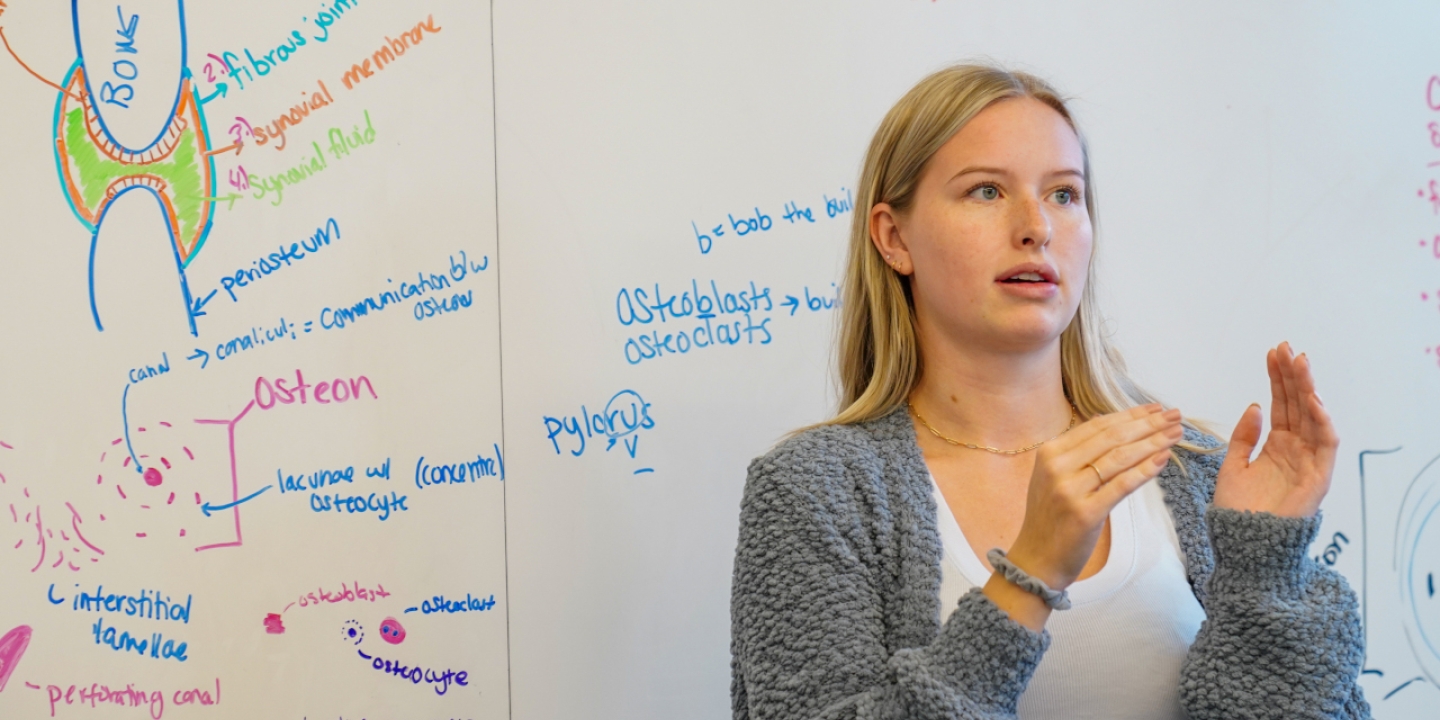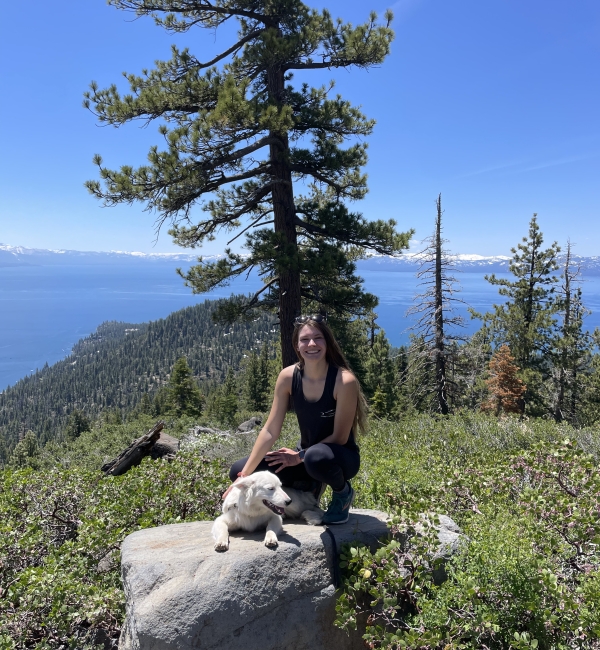Kerstyn, Class of 2027
When did you decide to pursue veterinary medicine?
I grew up on a ca le ranch and found a passion and love for helping the various animals we had. I would sleep in the barn tubing a calf every couple of hours to try and save it, drain and treat abscesses, and various other jobs to maintain the health of the animals. I interacted with many large animal veterinarians growing up and was fascinated by their knowledge and ability to treat animals and decided that was what I wanted to do from a very young age.
What did you do to prepare for veterinary school?
I started obtaining animal experience and talked to veterinarians that I interacted with starting at a very young age to learn what I needed to be accepted into veterinary school. I also went to an agriculture/veterinary-based high school where I competed in FFA veterinary science CDEs and learned more about agriculture's importance in beef ca le management and health. I majored in veterinary science and minored in mathematics, chemistry, and biology as an undergraduate. I also volunteered at a wolf refugee and researched zebra finches to broaden my husbandry skills. I also worked many retail and service jobs to learn how to communicate with a multitude of people and educate them about different things I was passionate about before working at a small animal veterinary hospital. Over breaks, I would shadow at other hospitals to learn more about the various environments within veterinary medicine.
What advice do you have for high school or college students who are interested in becoming a veterinarian?
Find hobbies and passions outside of veterinary medicine that make you well-rounded. It is important to find things you enjoy outside of veterinary medicine so that it does not become your identity. You are so much more than just a pre-veterinary student, and so much more than just grades. Finding those interests outside of school will make you a more competitive applicant and help you maintain balance and personal identity outside of veterinary school. Additionally, having a good work ethic but also knowing when to take a break and spend time doing what you love is so important to maintain throughout veterinary school.
Why did you choose Cornell and what do you enjoy most about the veterinary program?
I chose Cornell because of the problem-based learning curriculum and the opportunities Cornell presented in terms of networking with major veterinary professionals. My favorite aspect of the veterinary program is in fact the problem-based learning that allows you to think like a doctor with case studies and provides a unique opportunity to learn how to say “I do not know, yet”. Tutor groups also provide you with a group of friends from day one. I am originally from Nevada and moving to New York was a huge change. I struggled initially with the move, however, because of the faculty and peers within my tutor groups I was able to se le in. Additionally, most of the faculty are the best of the best within the veterinary industry and learning from them and connecting with them can help open up so many opportunities.




